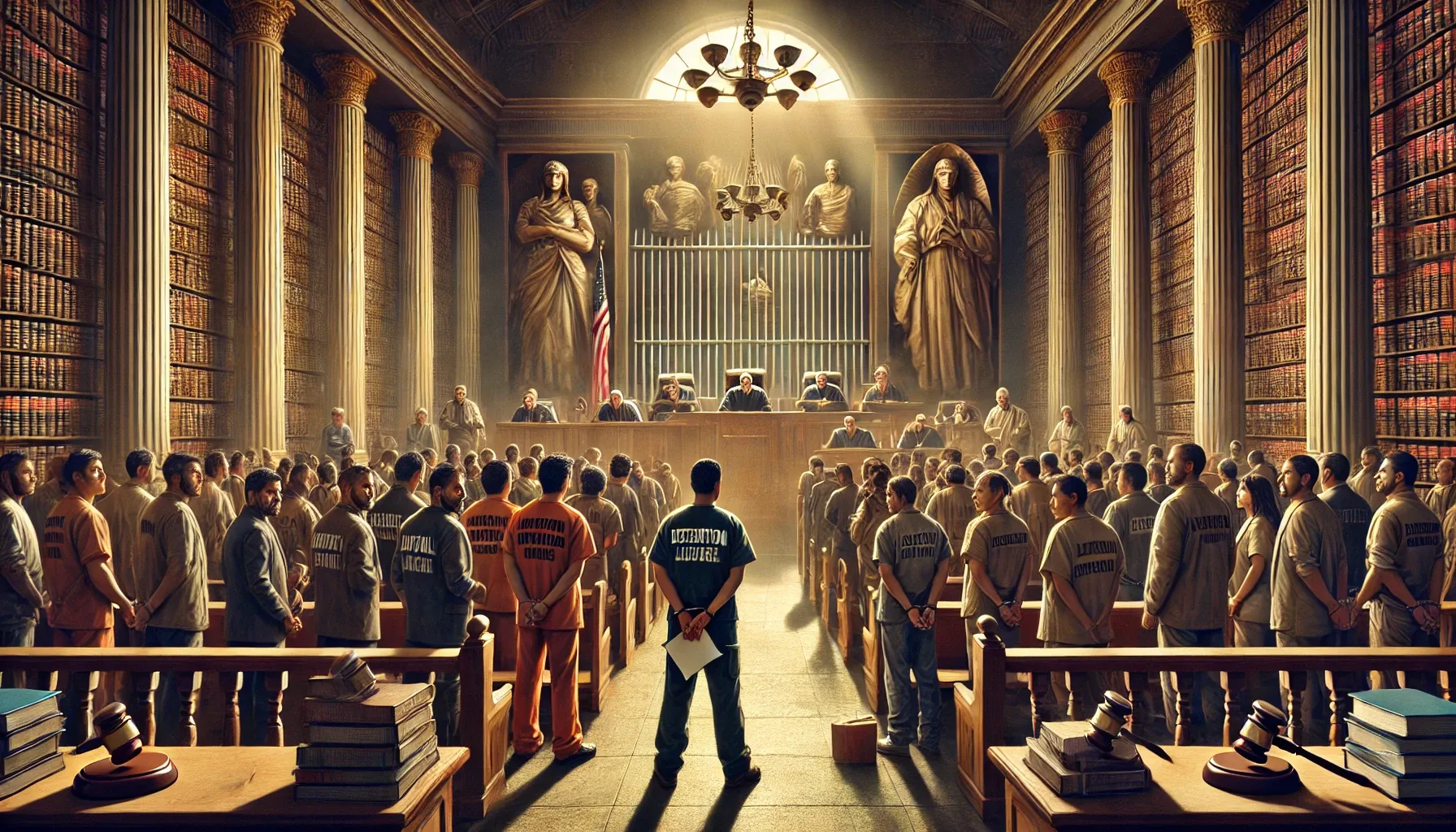The Supreme Court of India has reserved judgment on a case about illegal Bangladeshi immigrants, detained in West Bengal’s jails even after serving their sentences, raising concerns over verification delays and human rights.

The Supreme Court of India has reserved its judgment on a case concerning the indefinite detention of illegal Bangladeshi immigrants who remain confined in West Bengal correctional homes even after completing their prison sentences. The bench, comprising Justice J.B. Pardiwala and Justice R. Mahadevan, questioned the necessity of verifying the nationality of these immigrants from Bangladesh despite their conviction for illegal entry under the Foreigners Act. The Court strongly criticized the prolonged detention and the absence of proper detention centres in the state, highlighting the urgent need for procedural improvements.
Key Developments and Court’s Concerns
Indefinite Detention of Illegal Immigrants
- The case focuses on illegal Bangladeshi nationals detained in West Bengal correctional homes after serving their sentences for illegal entry into India under the Foreigners Act.
- Justice Pardiwala expressed concern over the prolonged detention, stating: “Why keep a person in jail after they’ve served their sentence? How can you do that?”
- He criticized the existing correctional homes in West Bengal as prisons in disguise: “It’s easy to put up a board saying ‘correctional home,’ but it still remains a jail.”
Verification of Nationality
- The Court questioned the need to verify the nationality of detained individuals from Bangladesh, despite their conviction for illegal entry.
- Justice Pardiwala asked: “If the charge against them is that they are Bangladeshi nationals who entered India illegally, why ask for verification from the neighboring country?”
- The Union of India, represented by ASG Bhati, argued that confirmation from Bangladesh is required for issuing travel documents and facilitating deportation.
- Justice Pardiwala rejected the reasoning, saying: “That’s not your problem. Today, we have reached a stage where we need to take immediate steps to send them back.”
Lack of Detention Centres in West Bengal
- The absence of proper detention centres in West Bengal was highlighted as a major issue.
- Justice Pardiwala questioned the state’s failure: “Is the state so poor that it cannot afford proper correctional homes?”
- Advocate Vrinda Grover, representing the petitioners, informed the Court that 70 out of 150 detained illegal immigrants are women.
- She described the correctional homes as prisons in everything but name: “They are euphemisms for correctional homes.”
Reference to Assam Detention Case
- Advocate Grover referenced the Assam Detention Centre Case (2019), where the Supreme Court had ordered the release of detained foreigners who had spent over three years in detention.
- She suggested applying similar guidelines to the current case to protect the rights of detained individuals.
- The Court acknowledged the relevance of the Assam case but emphasized that the circumstances were different as the detainees there were in proper detention centres, not prisons.
National Security and Humanitarian Concerns
- Justice Pardiwala underlined the larger issue of national security due to the prolonged detention of illegal immigrants.
- He emphasized India’s humanitarian approach, stating: “In other countries, they might lose their lives. Here, they are provided with shelter and medical aid.”
- The Court expressed the need for a sustainable solution: “How many correctional homes will you build? For how long will you keep these people in custody?”
The Union Government’s Perspective
- ASG Bhati admitted that India’s porous borders contribute significantly to the complexity of this situation.
- Justice Pardiwala raised a pertinent question: “If the neighboring country doesn’t want an illegal immigrant back, how long will you keep him?”
- The Court emphasized that detaining people indefinitely without a resolution is not a viable option.
Case Background
- The case originated in 2011 when a letter was sent to the Chief Justice of the Calcutta High Court highlighting the plight of illegal immigrants detained beyond their sentence.
- The Calcutta High Court took suo motu cognizance of the letter and transferred the matter to the Supreme Court in 2013.
Case Title: Maja Daruwala v. Union of India | Transfer Case (Criminal) No. 1/2013





